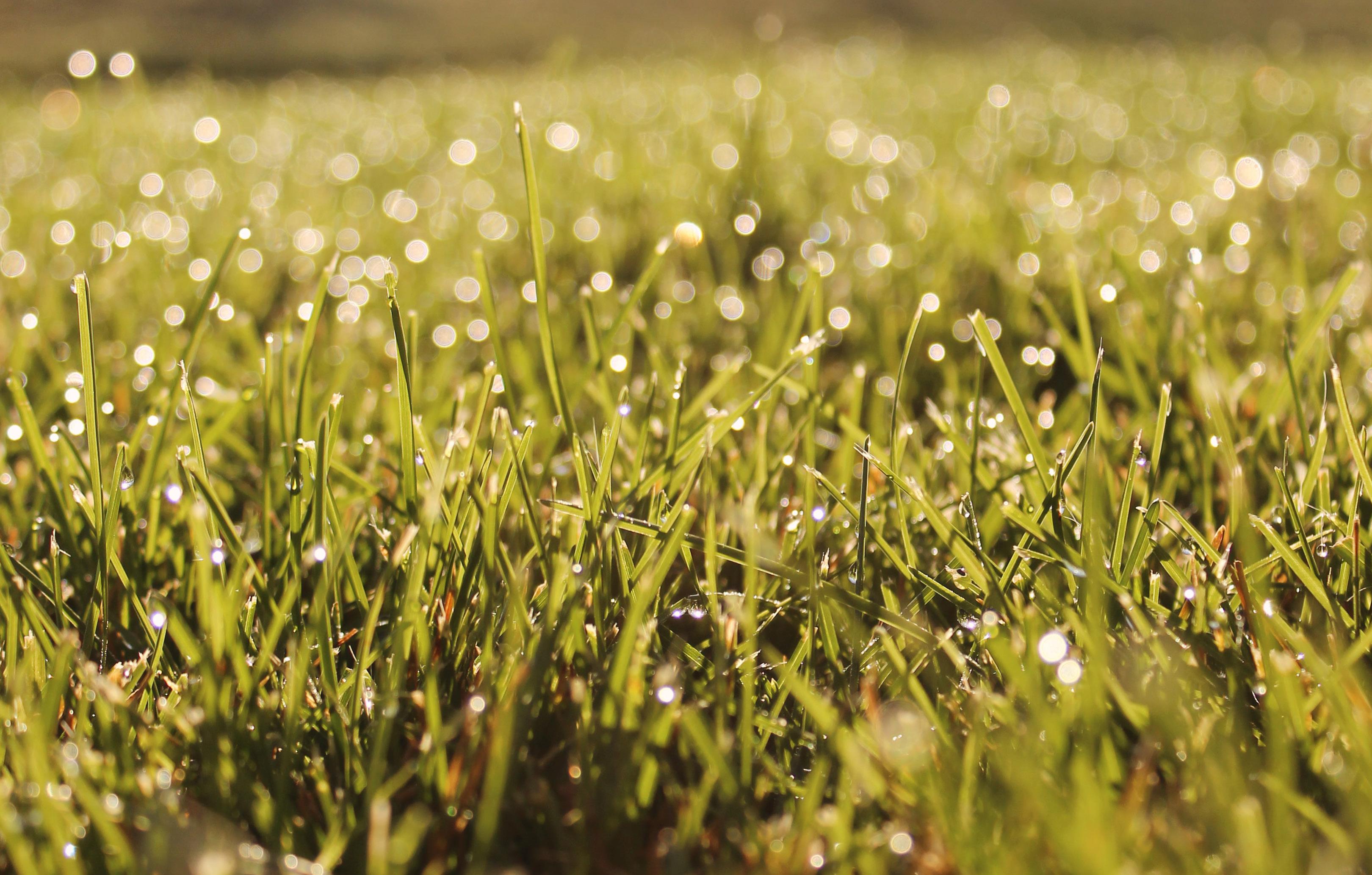Grounds Management Framework
SKILLS AND KNOWLEDGE MATRIX

The aim of Grounds Management Framework is for every natural turf sport surface to be maintained to achieve the best possible playing surface. 2
The Grounds Management Framework is a national framework for natural turf sport surfaces, so that those responsible for playing surfaces are aware of the pitch characteristics, resources, skills and knowledge required.
3 The grounds manager skills and knowledge matrix is part of the Grounds Management Framework.
4 The matrix outlines the skills and knowledge required to maintain a playing surface to each GMF level.
GROUNDS MANAGEMENT FRAMEWORK
5
To use the matrix it is important to understand what the desired GMF level is that you are looking to achieve for your playing surface(s).
Please use the table below to assist in identifying the right level.
6
7
Use the matrix to identify what skills and knowledge are required and assess your own capabilities against these to identify any areas of development.
NB The matrix builds on the skills already acquired on the levels below it. Therefore if you are responsible for an 'Advanced' level pitch, you should have acquired all the skills and knowledge listed under 'Basic', 'Good' and 'Advanced'.
8 These skills and knowledge could have been acquired from formal training or experience.
SUMMARY OF GMF LEVELS
A pitch/surface that is safe for recreational sport and meets the minimum playing needs and expectations of community players nationwide.
A pitch/surface that is good quality and safe for recreational sport. It meets the playing needs and expectations of community players nationwide.
A pitch/surface that is high quality and meets the needs of top-level recreational sport. It meets the playing needs and expectations of both community and semi-professional players nationwide.
The pitch/surface is of a very high quality that meets the needs of professional and semi-professional sport in the UK. It meets the playing needs and expectations of professional and semiprofessional athletes nationwide.
A pitch/surface that is of outstanding quality and meets the standards of play for elite sport in the UK. It meets the playing needs and expectations of professional athletes, both nationwide and globally. GMF – APPROPRIATE FOR LEVELS
CRICKET* Casual and friendly cricket Local and County Leagues Feeder Leagues to Premier Leagues National Counties and Premier Leagues
and First-Class Counties
FOOTBALL Grassroots gameCommunity football Grassroots gameCommunity football FA Women’s National League Premier and Division 1 National League System Steps 1-6 Barclays Women’s Super League and Championship EFL Championship, Leagues 1 and 2 International Barclays Women’s Super League Premier League and EFL Championship
RUGBY LEAGUE League levels 9-12 National Conference Leagues
League 1
and Super League
*Please note These levels are indicative. In cricket, performance quality standards (PQS) of squares and outfields are an indicator of pitch performance but other factors including laws of the game, playing regulations and other facility factors will determine the level of cricket that can be played.
Personal Individuals understand the role and career pathway of a grounds manager / operative in preparing a safe pitch for play. Awareness of different sources of support and development opportunities.
Operations
Individuals are able to safely prepare a pitch for play including safe use of machinery, marking out a pitch and basic maintenance operations.
Individuals are capable and familiar with basic management skills and able to supervise others on a one to one basis.
Individuals are able to competently supervise a small team and undertake key management functions.
Individuals are able to competently lead and manage a large team and effectively undertake all management functions.
Individuals provide senior management to a department providing leadership in all areas of ground management.
Management
Individuals are able to demonstrate safe working practices and undertake a basic visual assessment of the pitches.
Individuals understand the annual maintenance requirements of pitches and are competent undertaking and using a wide range of maintenance operations and machinery.
Individuals are competent in basic ground management techniques, undertaking a basic PQS assessment and have a good understanding of the Health and Safety Legislation.
Individuals can demonstrate a higher level of skills including specialist training and certification.
Individuals have an awareness and understanding of the operations available across the industry.
Individuals have an awareness and understanding of innovations and changes to operations across the industry.
Individuals are able to produce and implement a full turf management programme, detailed knowledge of PQS, understand how to use contractors effectively and able to oversee health and safety management of the ground.
Individuals have a high level understanding of sports turf agronomy, contract management, pitch construction and health and safety management.
Individuals have advanced knowledge and understanding of sports turf agronomy, pitch construction, implementation of a health and safety culture and innovations across the industry.

Personal Skills
Understand the objectives of a groundsperson in preparing a safe pitch.
Understand the role of a groundsperson in ensuring matches are played and player satisfaction.
Understand the pathway for self-development within cricket / football / rugby grounds management.
Know how to access different sources of face to face and on-line support.
Understand the Grounds Management Framework and how it can be applied.
Be able to work in a team.
Be able to work alone.
Awareness of Continuous Professional Development (CPD) opportunities and keeping knowledge up to date.
Know how to manage simple budgets.
Know how to make decisions.
Know how to supervise when working with more junior and/ or less experienced work colleagues.
Have basic IT skills (email, excel and word).
Be able to communicate with players, officials and management (internally and externally).
Know how to plan and prioritise work.
Be able to budget and forecast.
Have good presentation skills.
Be able to deal with complaints.
Be able to write reports.
Have supervisory skills.
Be able to train staff to a basic level.
Know how to create a work programme and resource profile.
Know how to plan staffing levels, holiday rotas and work schedules.
Know how to carry out recruitment and selection of staff.
Have an awareness of sources of income / funding and writing bids.
Be capable of working in a junior management, or technical role.
Be able to control budgets.
Be able to manage staff at an advanced level.
Be able to develop working procedures and protocols.
Be able to create and manage business plans.
Be able to provide guidance and support to others.
Be able to manage projects.
Be able to analyse and evaluate work.
Be able to lead.
Be able to manage a team.
Be able to manage contractors.
Be able to fulfil a senior management role.
Be able to interact with board members.
Be able to communicate at an advanced level.
Be able to provide a high level of work expertise and competence in managing and training others.
Be able to manage programmes and portfolios.
Be able to negotiate.
Be able to respond to complex situations and work demands.
Be able to price and plan projects.

Machinery and Materials
Understand the types of machinery and tools used in pitch preparation and the tasks they can perform.
Be able to use tools and set basic machinery to achieve a desired outcome.
Be able to carry out pre-start checks on machinery and understand annual machinery maintenance requirements.
Know how to use equipment and machinery safely.
Know how the main types of materials should be used to prepare a safe and playable pitch.
Understand the risks of using the wrong materials.
Know how and when to apply materials to a pitch.
Know how to safely store materials in line with legislation and best practice guidance.
Be able to understand the “why and when” when using turf maintenance equipment.
Be able to understand the basics of fertilisers and nutrients used within turf culture.
Be able to work independently when using hand tools and turf machinery.
Be able to correctly set up and safely use the common machinery and tools used in pitch maintenance.
Have an understanding and awareness of the importance of machinery replacement and upgrade plan.
Be capable of carrying out a wide range of duties that are more detailed and complex using all types of tools and mechanical equipment used in sports turf management.
Be capable of setting up turf maintenance equipment for others to use.
Have a detailed knowledge and understanding of all machinery and materials available across the industry.
Have an awareness of innovations and changes to materials and machinery across the industry.

Pitch / Ground Maintenance
Understand the importance of ongoing pitch repair.
Be able to carry out basic pitch repair work.
Be able to produce a seed bed.
Be able to returf an area.
Be able to prepare a pitch ready for a match including the match day preparation tasks.
Understand and keep up to date with changes to playing pitch requirements and goal post safety guidance.
Be able to safely erect and maintain specific sport equipment, such as goalposts, in accordance with regulations and best practice guidance.
Be able to mark out a pitch in accordance with laws of the game.
Be able to set out straight lines and right angles for pitch marking.
Be able to set out curves for pitches (e.g. soccer centre circle, corners, etc.).
Have an understanding of the annual sport specific surface requirements.
Be able to provide an understanding of the range of maintenance activities in maintaining natural turfgrass surfaces.
Know the different annual maintenance activities: preseason; in-season; and end of season activities.
Understand the importance of operations for end of season repairs and renovation.
Have an understanding of annual methods to competently and safely undertake aeration and decompaction.
Have an understanding of annual methods and timings to competently and safely undertake weed control and fertilisation.
Be able to demonstrate a higher level of skills including specialist training / certification.
Have a detailed knowledge and understanding of all turfcare operations.
Have an awareness of changes to best practice operations and innovations across the industry.
Grounds Management Have an awareness of basic turf management practices / standards that produce a safe and good quality surface.
Be able to create a maintenance calendar for a specific sports surface.
Be able to competently identify basic soils by hand texturing (sand, silt, clay).
Be able to competently identify threats to the turf health.
Understand the term Carrying Capacity.
Understand how different soil types can influence play and maintenance activities.
Understand the need for effective drainage / irrigation.
Be able to produce a work programme for a sports surface.
Be able to devise and implement a basic turf management programme such as irrigation schedules, fertiliser and pest and disease control programmes.
Be able to choose appropriate grass seeds and cultivars for a given situation.
Be able to select nutrient levels for optimum playing surfaces.
Be able to manage and rectify compaction issues.
Be able to understand the different types of drainage systems and the impact of drainage on pitch carrying capacity.
Know how to adapt to waterlogged and drought situations.
Be able to understand about the different types, uses and maintenance of nonturf surfaces, such as hybrid pitches, 3G, sand dressed, etc.
Be aware of environmental issues such as managing wildlife areas, recycling, waste minimisation, sustainable management.
Be able to understand how to identify and control common turfgrasses, weeds, pests and diseases.
Be able to understand the need and purpose of responsible management of water resources.
Have a high level understanding of sports turf agronomy.
Be able to produce a proactive Integrated Pest Management (IPM) programme.
Have the understanding and ability to sustainably manage turfgrass surfaces.
Have a good understanding of soil science.
Be able to show detailed and specialist knowledge level, of sports turf management.
Be able to show an understanding of the purpose and benefits of waste minimisation.

Have an advanced up to date practical, theoretical and technological knowledge and understanding of sports turf management.
Be able to understand the extent of green space and how it can be managed effectively.
Have an understanding of warm season grass management.
Be able to understand the management of different non-turf surfaces.
Be able to explore and understand how current and future developments and innovations can impact on the turf care industry.
Assessment
Construction
Be able to undertake a basic visual assessment of a playing surface.
Have a basic awareness of Performance Quality Standard (PQS).
Be able to complete a pitch assessment on the PitchPower App.
Understand the purpose and benefits of Performance Quality Standards (PQS).
Understand the playing qualities of surfaces.
Be able to carry out basic PQS testing of a surface.
Be able to assess the findings of basic PQS testing of a surface under supervision.
Have detailed knowledge of Performance Quality Standards (PQS).
Be able to interpret the findings of a PQS assessment.
Be able to complete basic proformas and write basic reports including PQS assessments under supervision
Be able to evaluate and understand a full Performance Quality Standards (PQS) result and implement turfcare practices/processes to produce optimum results.
Be able to adapt and use appropriate practical skills to address more, complex problems. Carry out basic and evaluate actions, methods and results.
Understand how to make effective turf management decisions based on environmental conditions.
Outsourcing/ Contractors
Be able to answer basic nontechnical and on-site queries.
Be aware of the role of external contractors and consultants.
Be able to comment and advise senior managers on contractor competence.
Be able to recognise basic problems that may occur when using contractors such as Health and Safety and poor practice.
Be able to understand a range of construction techniques.
Have basic design skills and competence for small scale works only.
Have an understanding of the role of Agronomists in construction works.
Have basic project management of contractors.
Have the ability to select and manage external contractors and consultants.
Have an awareness of contracts / preliminaries and specifications.
Have the ability to project manage a project from concept to completion.
Be able to manage procurement of equipment and services.
Have the ability to understand contract specifications for regular maintenance work such as end of season renovation, spraying, basic drainage / irrigation.
Be capable of assisting external specialist designers.
Be able to produce a design brief for the construction of Non turf, natural and hybrid turfgrass surfaces.
Be able to report and present findings to senior management.
Are capable of directing, advising, and assisting external specialist designers and consultants.
Have an understanding of and competence to undertake effective contract management.
Health and Safety
Be able to carry out a basic site risk assessment and determine mitigating actions to create a safe working environment.
Be able to demonstrate safe working practices.
Understand the risks associated with the use of machinery.
Know where to find information on personal protective equipment.
Understand the need for safe storage and disposal of materials.
Have an awareness of Health and Safety legislation.
Be able to understand health and safety regulations and terminology.
Have sufficient knowledge of current legislation applicable to the industry and apply where necessary.
Have detailed understanding of the health and safety legislation and regulations.
Have an understanding of and are able to safely apply pesticides.
Are able to oversee health and safety management. Are able to understand the principles and applications of managing risk, write a Health and Safety policy and the benefits of a positive health and safety culture.

